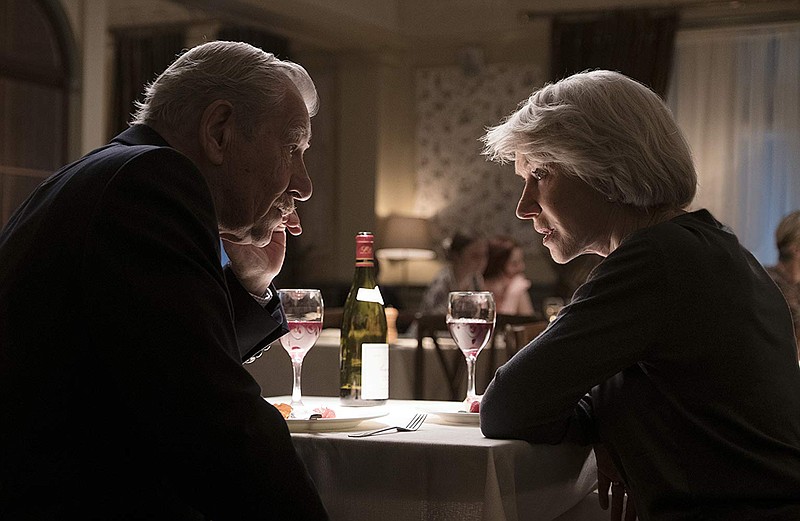A film with a title like "The Good Liar" is likely to have more than one twist up its sleeve, and that is completely the case with this deceptive drama.
What is real? What is fake? Who can be trusted and how much? Can anything be what it seems? All these questions and more are at the heart of a plot that unfolds like a series of Russian nesting dolls, so much so that outguessing every last twist and turn is unlikely to happen.
But perhaps the biggest bit of fakery involved is that for all its twistiness, "The Good Liar's" plot, which can be more than a little frustrating, is as much of a liability as a benefit in a production where the characters turn out to be more involving than their story.
That's because the actors in question, Helen Mirren and Ian McKellen, are the most proficient of professionals. Efficiently directed by the veteran Bill Condon (who has worked with McKellen thrice previously), they are an enormous pleasure to watch, both individually and playing off each other on screen for the first time in their decades-long careers.
As adapted by Jeffrey Hatcher from a novel by Nicholas Searle, "The Good Liar" is a self-consciously adult entertainment that ends up, not always convincingly, in a darker place than it starts out.
That beginning plays out innocently enough under the opening credits as we watch two individuals of advanced but unspecified years, Betty McLeish (Mirren) and Roy Courtnay (McKellen), filling out online dating questionnaires.
Next we see their initial London dinner together as the pair trade life stories: She a widow demurely talking about her single grandchild and he - the kind of elderly party who uses phrases like "bob's your uncle" - a son moved to Australia and never seen.
Though, as Roy puts it, these kinds of dinners often follow the pattern of anticipation followed by letdown, this one seems somehow different. Could a genuine spark have been lit on both sides?
At this point "The Good Liar" tells the story largely from Roy's point of view, and we see almost at once that even while he claimed piously at dinner that he "despises dishonesty above all else," Roy's life is one big lie.
A thorough-going con artist whose grifting takes place in a variety of settings, Roy is always acting, always playing a part for an audience.
Meeting the genial, trusting Betty, he tells longtime partner in crime Vincent (Jim Carter, unflappable Mr. Carson in "Downton Abbey"), is almost too good to be true, and he sets about winning her trust.
Despite the suspicion of grandson Stephen (Russell Tovey), Roy finagles his way into a stay at the guest room of Betty's quiet suburban home. "You are as generous as you are beautiful," he tells her, a bit smitten despite himself, and he appears to mean it.
Agreeing to go on a chaste holiday with him, Betty expresses a preference for Berlin, and it's on this trip to Germany that things start to get complicated and "Good Liar" begins to darken so much it almost becomes another film.
Roy and Betty continue, against some odds, to be creditable as people, but the events they are part of become increasingly less so. Though what can be revealed plot-wise is limited because of all the film's twists, narrative developments go from mildly unlikely to totally around the bend.
Through it all, however, Mirren and McKellen never waver. Smooth at being smooth, their conviction always convinces us, and their ability to register multiple subtle changes of emotion is consistently impressive. They are, in the final analysis, actors playing actors pretending not to be actors, and that is something to see.

